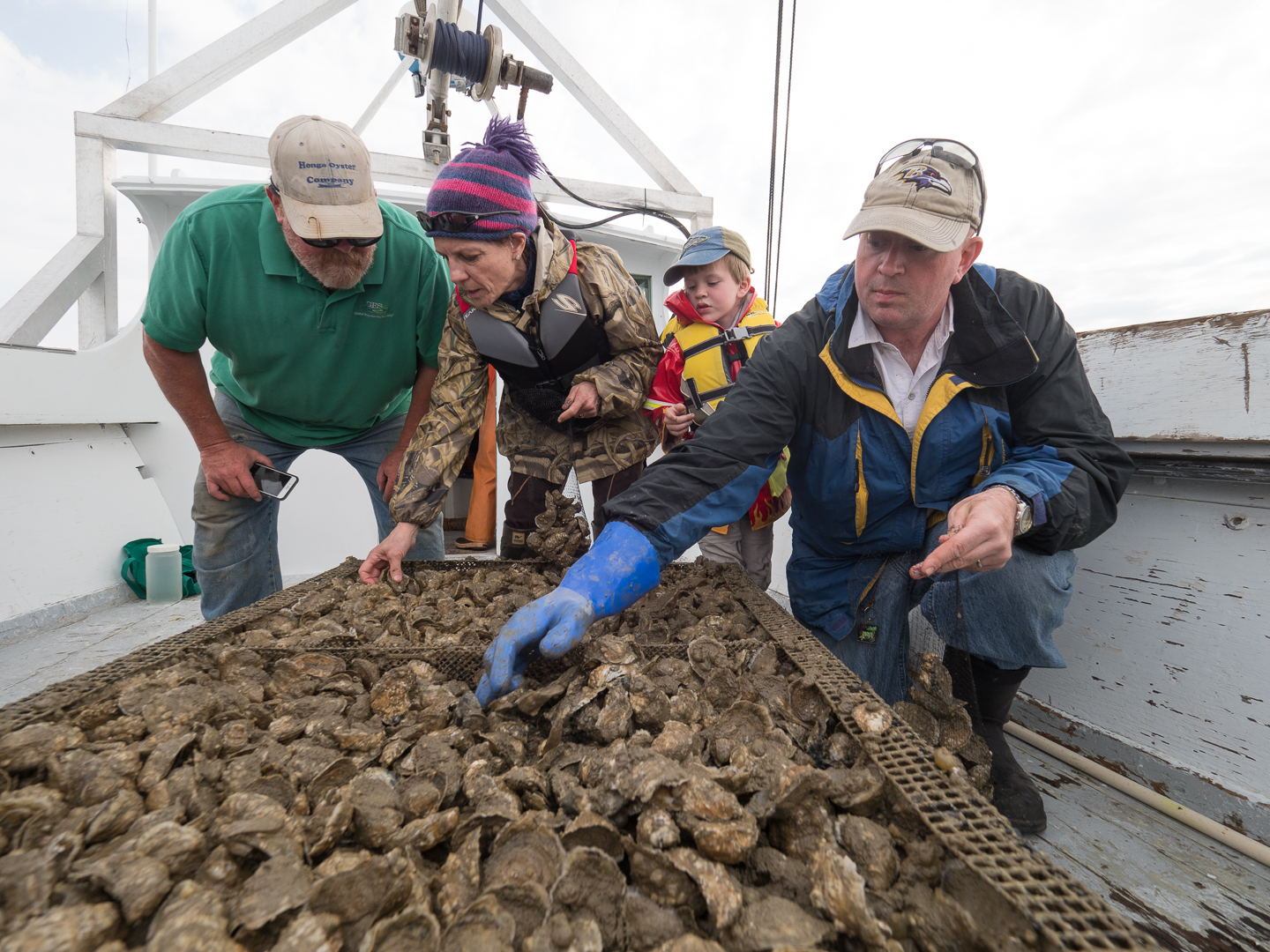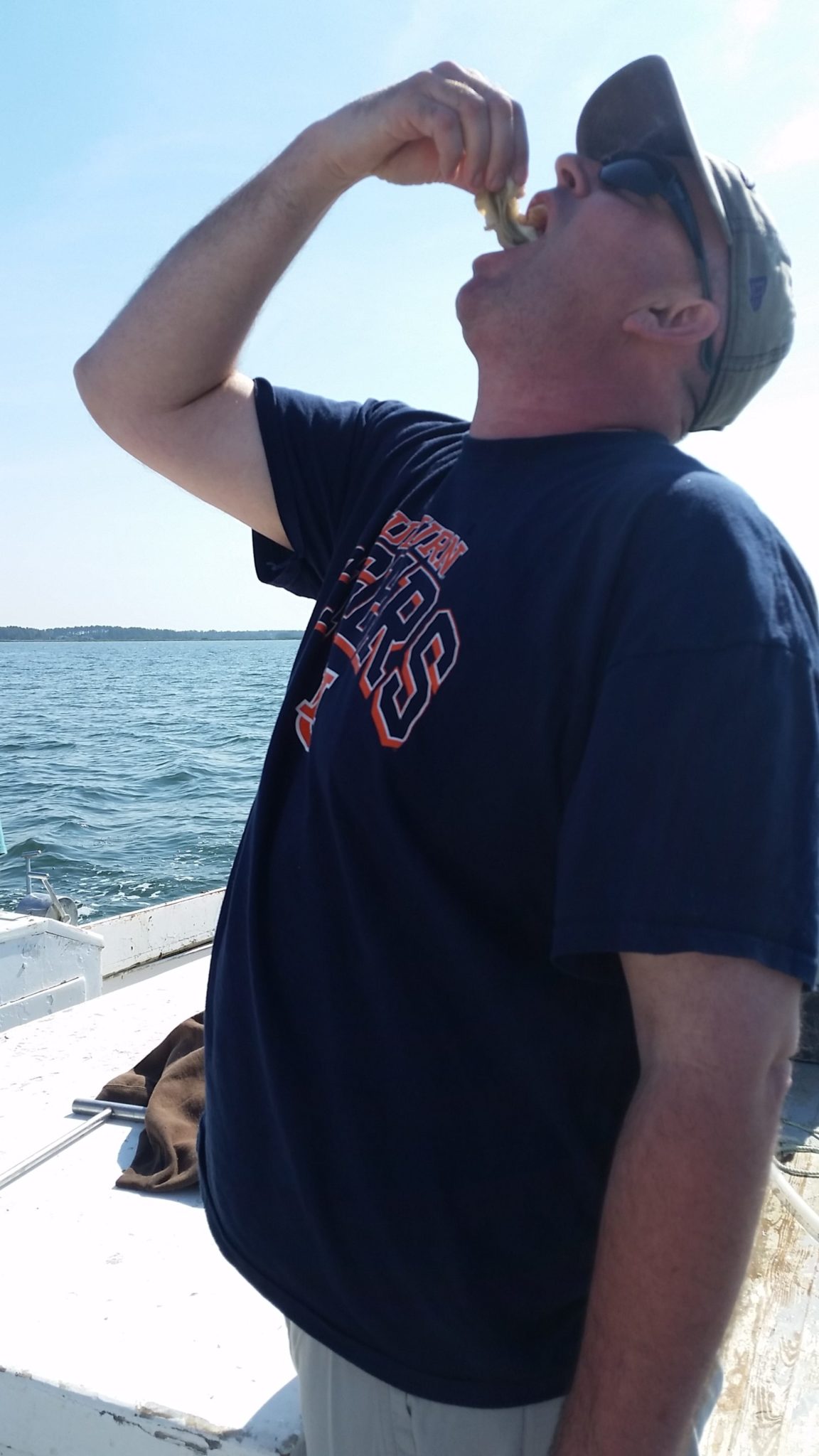Q&A with Matt Parker, Aquaculture Business Specialist
Note: The Global Aquaculture Alliance spotlights various members dedicated to GAA’s mission of responsible aquaculture. Membership starts at only $50 for individuals and $5,000 for businesses. Start utilizing our extensive benefits. Featured this month is Matt Parker, Aquaculture Business Specialist at the University of Maryland Extension.
Tell us a bit about your background.
 Way back when, I had a little trouble with chemistry when I was a textile major at NC State University. After my dad giving me an ultimatum about getting my grades up, I saw there was a Fish and Wildlife Science Program. In one of my first classes, I heard about the NCSU Fish Barn and was intrigued. After we went on a class tour of the facility a friend who worked there introduced me to Dr. Tom Losordo and Mr. Dennis DeLong. Somehow I managed to talk them into a part time job and my career in aquaculture was started.
Way back when, I had a little trouble with chemistry when I was a textile major at NC State University. After my dad giving me an ultimatum about getting my grades up, I saw there was a Fish and Wildlife Science Program. In one of my first classes, I heard about the NCSU Fish Barn and was intrigued. After we went on a class tour of the facility a friend who worked there introduced me to Dr. Tom Losordo and Mr. Dennis DeLong. Somehow I managed to talk them into a part time job and my career in aquaculture was started.
After I graduated from NC State, I worked for Dr. Jeff Hinshaw in his NCSU Trout Barn for a short time before taking a position as a Hatchery Technician at the Pisgah Forest State Trout Hatchery in Brevard NC. It was there I figured out I really liked aquaculture, but realized I needed to make more money or operate my own farm. Since I didn’t have the capital to start my own farm, I went to Auburn University and enrolled in the Master of Aquaculture (MAq) Program. It is a non-thesis Master Degree where we worked on the university fish farm learning everything from spawning, water quality, sales, and dead fish pick up on holidays. While there, my professor, Dr. Tom Popma, came up with an idea to increase the business knowledge of MAq students so they could move into farm business management positions.
After graduating with my MAq, I enrolled in the Auburn MBA Program. When I was about to finish my MBA, I once again called on Dr. Losordo and Mr. DeLong. They referred me to an Aquaculture Business Specialist position that was being advertised with the NC Dept. of Agriculture and Consumer Services. I applied and accepted that position shortly after graduation. At NCDA&CS I helped NC Aquaculture producers with writing business plan, figuring out economics, environmental issues, and anything else I was asked to help with. I helped hybrids striped bass, catfish, recreational fish, crawfish, tilapia, alligator and shellfish producers. I have since realized how lucky I was to be exposed to so many different aquacultured species. While there my supervisor, Mr. Tom Ellis, and colleague, Ms. Debra Sloan, encouraged me to attend every national aquaculture meeting I could. They took me under their wing and introduced me to everyone they knew. It was these introductions which help me develop a respected network of aquaculture professionals so quickly. It didn’t hurt having the Toms, Dennis, and Debra vouch for me. While I was on a weekend camping trip one year, a friend introduced me to my future wife. After a few years we decided to get married. She had a better federal job in DC than I had a state job in NC. I resigned from NCDA&CS, moved to Maryland and started job hunting. I applied for a job as a fisheries economist with Maryland Dept. of Natural Resources but didn’t get it. I did catch the attention of Dr. Doug Lipton who was planning to hire an Aquaculture Business Specialist for the University of Maryland Extension Program. Once the position was announced, I applied, received an offer and started working for University of Maryland Extension.
 Here at UMD, I primarily help shellfish producers with business planning and other related topics. Not long after my start, I talked to Dr. Lipton about pursuing my PhD. He thought it was a good idea. I enrolled as a part time student in the UMD Marine Estaurine Environmental Science Program with Dr. Lipton and Dr. Reggie Harrell as my co-advisors. I worked on my PhD while working full time as an Aquaculture Business Specialist for UMD Extension. It was quite a task being a student, husband, dad, and working full time, but I managed to get it finished. I graduated in May 2019 with my PhD. My project looked at the effects of utilizing a specialty lending program established in MD for shellfish aquaculture and comparing it to conventional debt financing or self-financing oyster farms in MD. Over the years at UMD I was encouraged to become active in a national association. I served on the US Aquaculture Society Finance Committee to to dip my toes in the water and see how I liked it. After that experience I ran for the potion of USAS Secretary/Treasurer. I won the election and spent 2 years helping the society in that position. From there I decided to run for President-Elect. I won that election and am currently serving in that position. I’ll assume the position of President after our next USAS meeting in Hawaii. I’m looking forward to continuing my career at UMD and serving the USAS in my future position. I see the need to bring more students in and get them involved with aquaculture all around the world. Our industry has a huge untapped potential, I hope we can take advantage of.
Here at UMD, I primarily help shellfish producers with business planning and other related topics. Not long after my start, I talked to Dr. Lipton about pursuing my PhD. He thought it was a good idea. I enrolled as a part time student in the UMD Marine Estaurine Environmental Science Program with Dr. Lipton and Dr. Reggie Harrell as my co-advisors. I worked on my PhD while working full time as an Aquaculture Business Specialist for UMD Extension. It was quite a task being a student, husband, dad, and working full time, but I managed to get it finished. I graduated in May 2019 with my PhD. My project looked at the effects of utilizing a specialty lending program established in MD for shellfish aquaculture and comparing it to conventional debt financing or self-financing oyster farms in MD. Over the years at UMD I was encouraged to become active in a national association. I served on the US Aquaculture Society Finance Committee to to dip my toes in the water and see how I liked it. After that experience I ran for the potion of USAS Secretary/Treasurer. I won the election and spent 2 years helping the society in that position. From there I decided to run for President-Elect. I won that election and am currently serving in that position. I’ll assume the position of President after our next USAS meeting in Hawaii. I’m looking forward to continuing my career at UMD and serving the USAS in my future position. I see the need to bring more students in and get them involved with aquaculture all around the world. Our industry has a huge untapped potential, I hope we can take advantage of.
Why did you join GAA?
I’ll be totally honest. I joined GAA because of the World Aquaculture Society promotional membership. That being said, I have come to realize GAA is a great organization working to develop aquaculture around the world. I have enjoyed and benefited from the information GAA sends out and look forward to learning more and continuing my membership for many years into the future.
What solutions does responsible aquaculture provide?
I feel responsible aquaculture can help provide a protein source for the growing world population. Does that sound canned and idealistic? Yes it does, however it is true. I think this is particularly true of shellfish aquaculture. Many of my clients in MD are proud they do not use any fresh water to produce their crop. I feel issues with the use of fresh water are one challenge to the aquaculture industry. Finding profitable ways to produce protein with the reduced use of fresh water is critical. It could be from RAS systems or from exploring options in our oceans, but it must be done in an environmentally friendly manner and it must be profitable. I think the aquaculture industry can find a way to make both of these things happen.
What are the three words that best describe the future of the industry?
Bright, challenging, innovative
Where is the most interesting place you’ve traveled to?
I would have to say the most interesting place I have traveled professionally was Myanmar. On 2 separate occasions, I was asked to provide aquaculture business planning workshops for the aquaculture producers in the country as part of the USDA Farmer 2 Farmer program. It was an eye opening experience. The people were incredibly friendly and eager to learn how to keep track of farm costs, determine costs of production, and calculate farm profitability. I hope to return some day and see how the workshop attendees are doing with their farming operations and if they every wrote a business plan.




